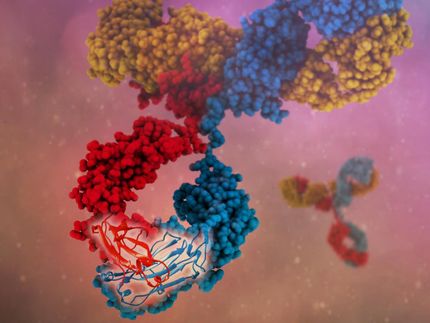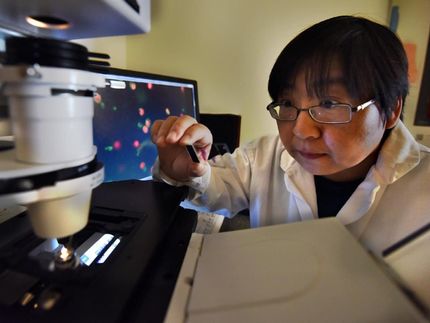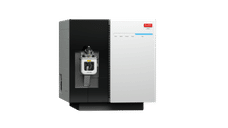Analytica Research Prize for Dr. Matthias Selbach of MDC
New Method for Measuring the Production of Thousands of Proteins
Advertisement
Dr. Matthias Selbach, biologist at the Max Delbrück Center for Molecular medicine (MDC) Berlin-Buch, Germany, has been honored with the Analytica Research Prize 2010 in an award ceremony at the Analytica 2010 trade fair in Munich. Dr. Selbach received the prize, which is endowed with 25 000 euros, for his work on “the impact of microRNAs on protein production in cancer cells”. The prize is awarded by the Society for biochemistry and molecular biology (GBM) and funded by Roche.
Proteins play a key role in practically every cell activity: Whether they transport oxygen, make muscles move or digest food – proteins are the chief actors in almost all biological processes. The “blueprint” for proteins is encoded in the genes. But although all cells of the body have the same genes, they produce quite different proteins. How then is the production of these different proteins regulated? Hitherto, scientists have devoted much effort to investigate each protein individually.
In their laboratory in Berlin, Dr. Selbach and his research team have now developed a new approach enabling them to measure the production of thousands of proteins simultaneously. The method involves labeling the amino acids, the building blocks of proteins, with stable isotopes. The cells then incorporate the isotope-labeled amino acids into the proteins. As a following step, the scientists quantify the protein synthesis using a mass spectrometer.
Only a few years ago, researchers discovered that microRNAs play an important role in gene regulation. microRNAs are tiny pieces of ribonucleic acid, a chemical relative of DNA. microRNAs also determine which proteins are produced by which cells.
If the regulation goes awry, this can lead to many diseases. Scientists across the globe are therefore seeking to develop methods to detect which microRNAs are active in the body’s cells and which proteins are regulated by them.
But exactly which proteins does a specific microRNA regulate? To solve this question, the research teams of Dr. Selbach and Professor Nikolaus Rajewsky at the Max Delbrück Center have joined forces.
Using the novel analytical approach they developed, the MDC researchers for the first time were able to quantify the influence of microRNAs on protein production. They discovered that a single microRNA can regulate synthesis of hundreds of proteins. In this way microRNAs can program the behavior of human cells.
Since in cancer cells different microRNAs are active than in healthy cells, microRNAs are considered to be promising candidates for diagnostics and therapy. Therefore, the researchers’ findings are anticipated to have a great impact in the future.
Other news from the department science
These products might interest you
Most read news
More news from our other portals
See the theme worlds for related content
Topic World Mass Spectrometry
Mass spectrometry enables us to detect and identify molecules and reveal their structure. Whether in chemistry, biochemistry or forensics - mass spectrometry opens up unexpected insights into the composition of our world. Immerse yourself in the fascinating world of mass spectrometry!

Topic World Mass Spectrometry
Mass spectrometry enables us to detect and identify molecules and reveal their structure. Whether in chemistry, biochemistry or forensics - mass spectrometry opens up unexpected insights into the composition of our world. Immerse yourself in the fascinating world of mass spectrometry!



























































